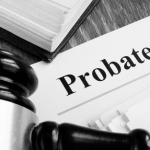A life estate deed is the common term for a deed with a life estate reserved. This means a property owner conveys real property to another person but reserves the right to “enjoy” the property for the grantor’s life. The grantor is called the “life tenant” and the grantee is called the “remainderman.”
Life Tenant Rights And Obligations
Section 47-02-33 of the North Dakota Century Code states a life tenant may use the land in “the same manner as the owner of a fee simple.” Translation: for the most part, the life tenant may use the real property as though the life tenant had not conveyed away from the remainder of the estate. This means the life tenant has the right to possession, enjoyment, rents, and profits during the life tenant’s life. It also means the life tenant is responsible for real estate taxes during the life tenant’s life. Although it is not common, a life tenant can sell or otherwise transfer a life estate.
Remainderman Rights And Obligations
Section 47-02-33 of the North Dakota Century Code states a life tenant “must do not act to the injury of the inheritance.” Translation: the life tenant cannot commit “waste” on the property. “Waste” means a significant devaluation of the remainder interest. Further, the life tenant generally cannot sign an oil and gas lease without the remainderman’s obligation. Again, although it is not common, a remainderman can sell or otherwise transfer a remainder interest in real property.
Life Estate Uses
Life estate deeds are commonly used in estate planning. It’s a “nonprobate transfer,” which means probate would not be required to transfer title. This can be useful if a person is trying to avoid the probate process. Life estate deeds can also be used for medical assistance planning and gift and estate tax planning. The benefit of using a life estate deed with respect to gifts is that the gift is the value of the remainder interest instead of the fee estate.
Issues Related To Life Estates
Creditors can reach both a life estate and a remainder interest. A life tenant also would need the remainderman’s consent to sell the property. In other words, the conveyance is permanent unless the remainderman is cooperative.
Contact our Real Estate Team or Trusts & Estates Team if you have any questions regarding life estate deeds.
The information contained in this article and on this website is for informational purposes only and not for the purposes of providing legal advice. You should contact an attorney to obtain advice with respect to any particular issue or problem.










